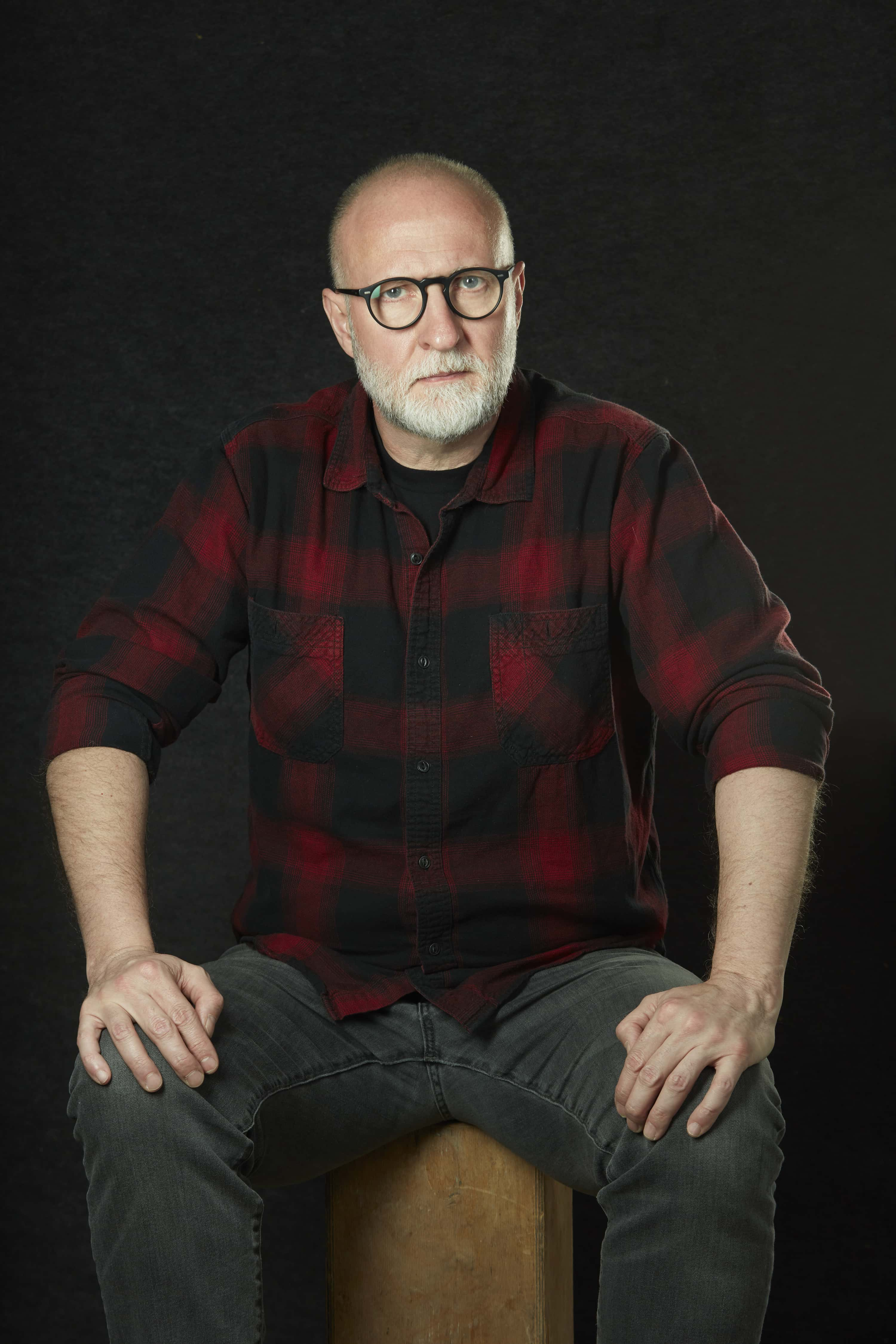'Blue Hearts' Review: Bob Mould revisits punk roots on protest-themed album that declares an 'American crisis'

Musician Bob Mould makes a grand return with 'Blue Hearts', an unfiltered, pure punk record that is as much a throwback to his days playing with Hüsker Dü in the '80s as it is a progression of his sound on his more recent releases, including 2019's 'Sunshine Rock'.
In the late '70s, Mould founded Hüsker Dü with drummer/singer Grant Hart and bass guitarist Greg Norton. The group earned recognition as an independent act before signing with Warner Records in 1986. Despite seemingly being poised for great success, the band didn't have a major breakthrough. What they did accomplish, however, was the feat of being one of the most influential alternative rock bands of the era who would go on to become a major influence on '90s acts like Nirvana and Pixies.
Amid drug abuse, creative differences and the suicide of band manager David Savoy, the band crumbled. Mould, having shut himself away in a Minnesotan farmhouse after achieving sobriety, embarked on a solo career beginning with his 1989 solo debut album 'Workbook'. Noted for its lighter, almost folksy sound, 'Workbook' was a new era for Mould, one that would see him explore different areas of his established style. And in the winter of 2019, Mould bucked the era’s despair with his most melodic, upbeat album in ages, 'Sunshine Rock'. Cut to spring of 2020, and he has this to say: “We’re really in deep s**t now."

That sentiment informs Mould's new full-length album, 'Blue Hearts' — the raging-but-catchy yin to 'Sunshine Rock's yang. Recorded at the famed Electrical Audio in Chicago with Beau Sorenson engineering and Mould producing, 'Blue Hearts' is a nod to Mould’s past while remaining firmly planted in the issues of the day. The result is a pure punk record that would probably fit right in on the '10 Things I Hate About You' soundtrack. A record that is so authentic to the genre's roots and core that it's obvious it is helmed by someone who helped shape it.
Back in June, Mould shared the first song off the record titled 'American Crisis', an incendiary track accompanied by an equally provocative lyric video. "'American Crisis' is a tale of two times," says Mould. "Past Time and Present Time. The parallels between 1984 and 2020 are a bit scary for me: telegenic, charismatic leaders, praised and propped up by extreme Evangelicals, either ignoring an epidemic (HIV/AIDS) or being outright deceitful about a pandemic (Covid-19)."

'Blue Hearts' is perhaps the most directly confrontational work of Mould's four-decade career, a raging 14-track collection described by its creator as "the catchiest batch of protest songs I’ve ever written in one sitting". Where 'Sunshine Rock' captured Mould at his most "violently happy" (according to Rolling Stone), 'Blue Hearts' is both seething and pointed. The acoustic opener, 'Heart on My Sleeve' catalogues the ravages of climate change, while 'American Crisis' — written initially for Sunshine Rock but deemed "too heavy" by its writer — spits plainspoken fire at the people who fomented this catastrophic moment in history: "I never thought I’d see this b******* again / To come of age in the ’80s was bad enough / We were marginalized and demonized / I watched a lot of my generation die / Welcome back to American crisis."
Elsewhere, the political and personal collide on songs such as 'Everyth!ng to You', 'The Ocean', and the salaciously autobiographical 'Leather Dreams', the latter two composed earlier this year during an epic three-day writing binge prior to January 2020’s sold-out Solo Electric tour. As volatile, hook-laden and aggressively honest as anything in Mould’s remarkable canon, 'Blue Hearts' is fueled by a pervasive sense of déjà vu, its angry anthems of today equally informed by his experiences and memories of the early 1980s.
Back then, Mould was a self-described "22-year-old closeted gay man" touring with the one and only Hüsker Dü as AIDS consumed his community. Leaders — including the one in the White House — seemed content to let the epidemic kill a generation. It's no wonder, thus, that Mould found his mind wandering back to those times. Speaking of the aforementioned 'leaders', he shares, "These f*****s tried to kill me once. They didn’t do it. They scared me. I didn’t do enough. Guess what? I’m back, and we’re back here again. And I’m not going to sit quietly this time and worry about alienating anyone."
July saw the release of a second song, 'Forecast of Rain'. In a statement about the song, Mould shared, "As a child, my mother took me to Sunday Mass. I’ve written many songs around religion. In the 2000s, I went back to the Catholic Church for three years — but I did not find my place. I recognize the importance of religion for those who believe: the worship, the rituals, the community; loving thy neighbor, following commandments, doing unto others as you would have them do unto you. In short, be nice to people, help however you can, and don’t steal stuff."
"But," he continued, "right now, I’m having a hard time understanding how certain religious sectarians can support the behavior of those who occupy the People’s House. How can you endorse their disregard for truth? How can you tolerate the incessant vindictiveness? How can you stand by your man while people are teargassed to clear a path to the Lord’s House? I’m not good at quoting scripture, but I can manage two words: Jesus wept." With this track, Mould proved 'American Crisis' wasn't a one-time occurrence of him revisiting his earlier sound and style. He was going all in.
'Siberian Butterfly' followed, with Mould once again sharing via a statement: "The genesis of 'Siberian Butterfly' spoke to the notion of 'collectors' – people with excessive means who gather the works of creative folk for their ego-driven portfolios. As I kept writing, the narrative shifted toward themes of change, growth, and freedom. These motifs are central to how we become our true selves. This is how we begin our journey toward our true identities."
He continued, "It’s autobiographical as well. I put myself through some self-hating years as a young gay man – never feeling 'good enough', not recognizing the positive qualities I had to offer, while inhibiting the development of my gay identity. I hope for a world where all people can be what they want to be. Life seems shorter every day; maybe this simple song can be of use to people who are struggling to find their true selves."
From climate change to critiques on the government's response to multiple crises, and from questioning the ethos of the American community to taking stock of what it means to hail from a persecuted group, 'Blue Hearts' is the culmination of Mould's experiences. The album delivers with fiery rage and musical excellence one core idea: "This love thy neighbor thing: Does it apply to all mankind, or only those who fit neatly inside your narrow lines?" And while the answer to that should be obvious, it's a sentiment that is often obscured by the political landscapes that direct societal ebbs and flows. Which, precisely, is what makes this record so remarkably on point.
'Blue Hearts' releases worldwide on September 25, 2020.










